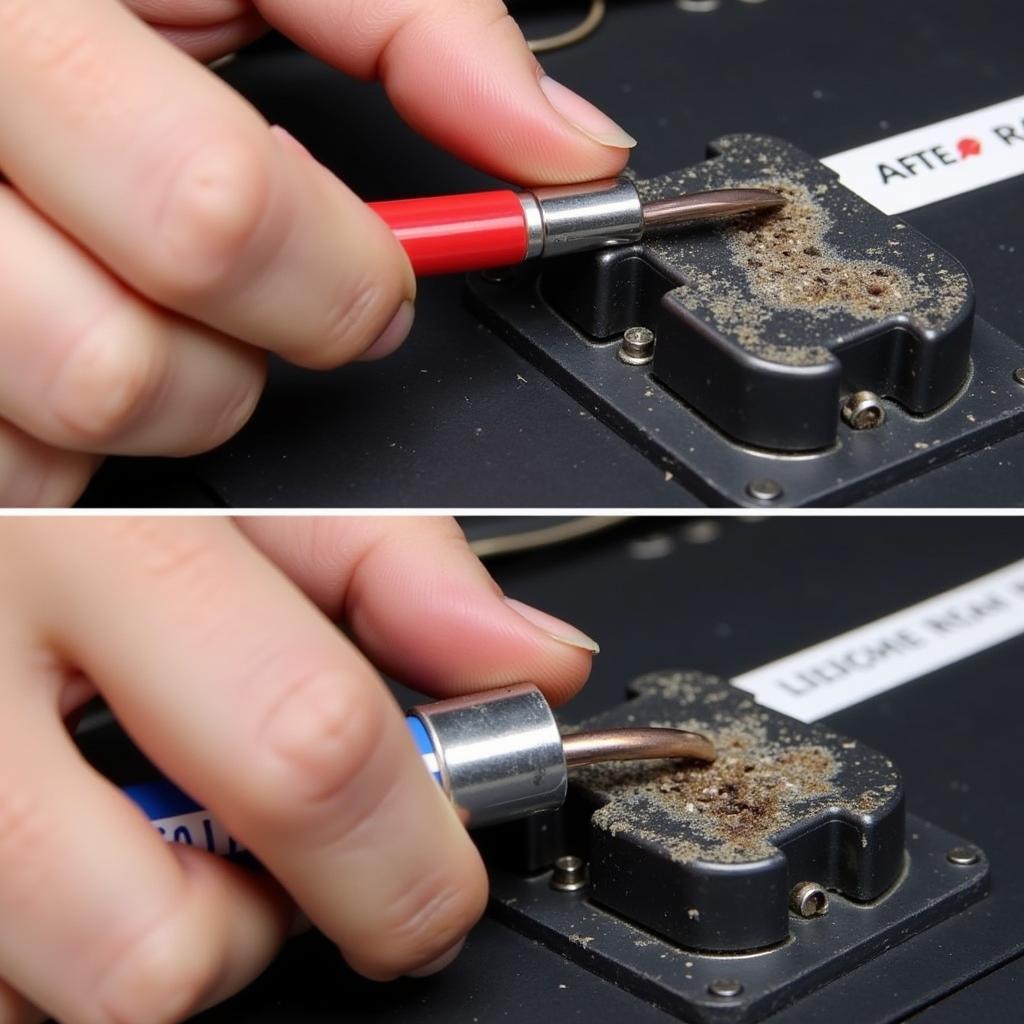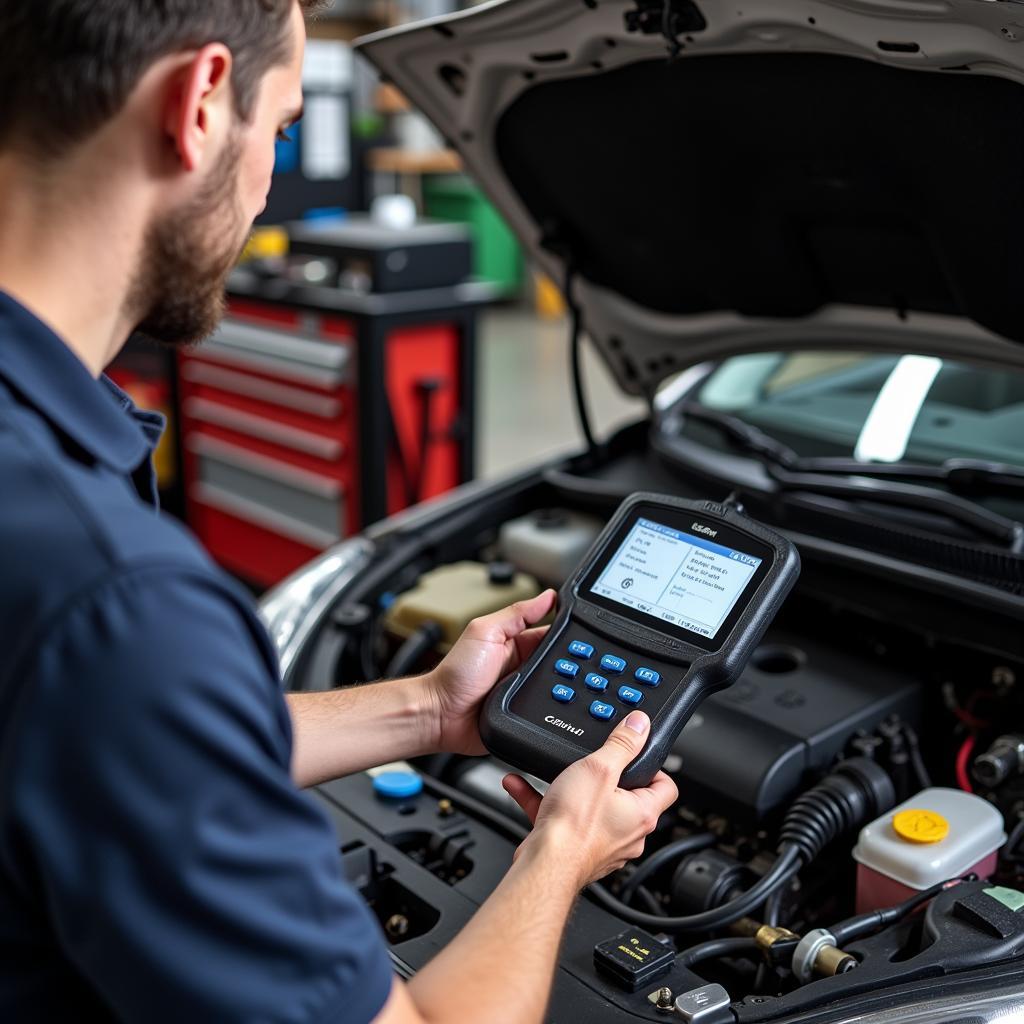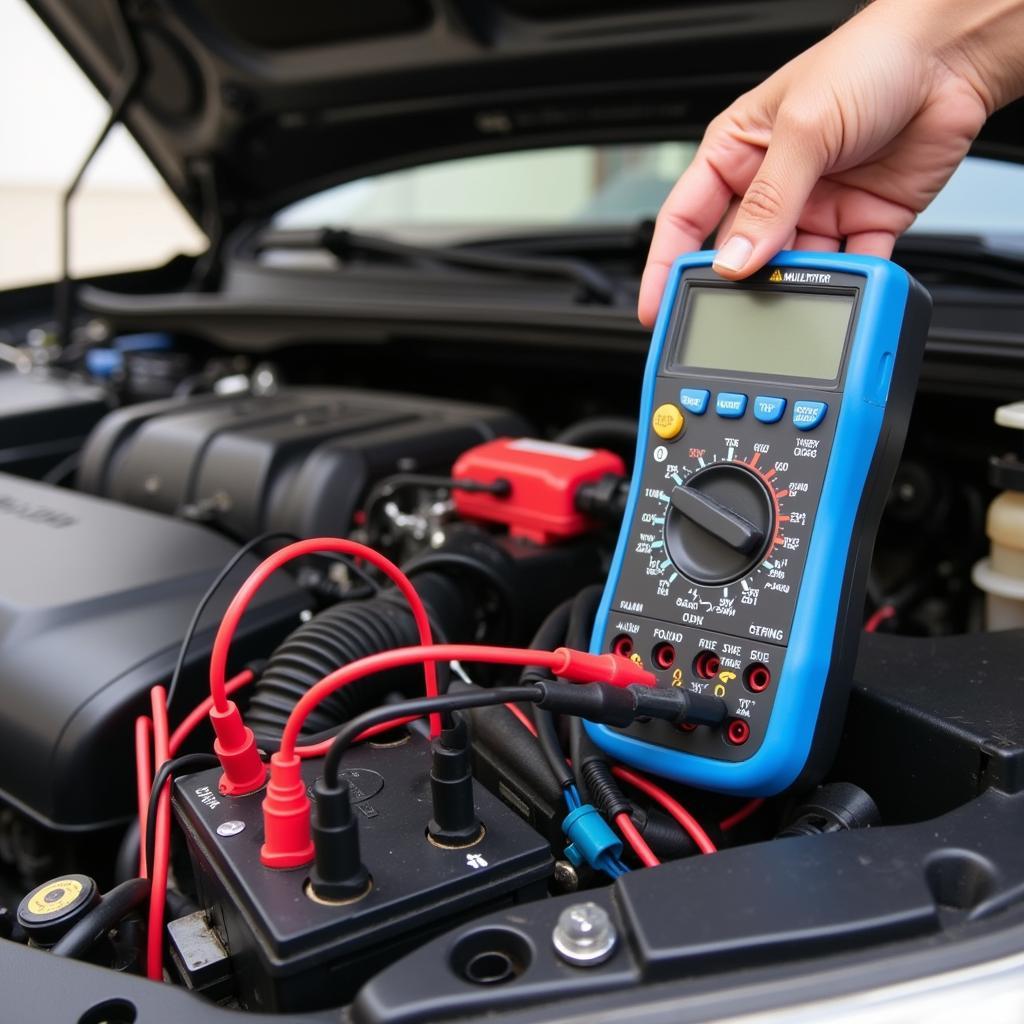A full car battery that won’t start your vehicle can be incredibly frustrating. You’re sure the battery is charged, yet nothing happens when you turn the key. This article will dive into the common causes of this problem, providing troubleshooting tips and solutions so you can get back on the road quickly.
Why is My Car Battery Full But Not Starting?
There are several reasons why your car might not start even with a fully charged battery. It’s not always the battery itself; other components can be the culprit. Let’s explore some of the most frequent issues.
Starter Motor Issues
One of the most common reasons for a car not starting despite a full battery is a faulty starter motor. The starter motor is responsible for cranking the engine, and if it’s malfunctioning, the engine won’t turn over.
-
Symptoms of a bad starter motor: Clicking sound when turning the key, grinding noise, or the engine turning over very slowly.
-
Troubleshooting the starter: A simple test is to have someone gently tap the starter motor with a hammer or wrench while you attempt to start the car. If the car starts, the starter is likely the issue.
Corroded Battery Terminals
Even with a full charge, corroded battery terminals can prevent the electrical current from reaching the starter and other essential components.
-
Identifying corrosion: Look for a white, powdery substance around the battery terminals.
-
Cleaning corroded terminals: Disconnect the battery cables (negative first, then positive), clean the terminals with a wire brush and baking soda solution, and reconnect the cables securely.
 Cleaning Corroded Battery Terminals
Cleaning Corroded Battery Terminals
Faulty Alternator
While the alternator doesn’t directly prevent your car from starting, a failing alternator can drain your battery quickly, even overnight. A full battery one day can be dead the next if the alternator isn’t charging it properly.
-
Testing the alternator: A multimeter can be used to check the alternator’s output voltage.
-
Alternator replacement: Alternator replacement is usually straightforward and can often be done at home with basic tools.
Other Potential Problems: Ignition System and Fuel Pump
Beyond the starter, battery terminals, and alternator, other issues can prevent your car from starting.
Ignition System Problems
A faulty ignition switch, ignition coil, or spark plugs can prevent the engine from receiving the spark it needs to ignite the fuel.
- Checking the ignition system: A professional mechanic can diagnose ignition system problems using specialized tools.
 Mechanic Checking Car Ignition System
Mechanic Checking Car Ignition System
Fuel Pump Issues
If the fuel pump isn’t working correctly, fuel won’t reach the engine, preventing it from starting.
- Listening for the fuel pump: You should hear a faint buzzing sound from the fuel pump when you turn the key to the “on” position (without starting the engine).
Car Battery Full But Not Starting: FAQs
-
Q: What is the most common reason a car won’t start with a full battery? A: A faulty starter motor is often the culprit.
-
Q: How can I tell if my alternator is bad? A: A failing alternator can cause dim headlights, flickering interior lights, and a dead battery after short periods.
-
Q: Can a bad ignition switch prevent my car from starting? A: Yes, a faulty ignition switch can prevent the electrical signal from reaching the starter.
-
Q: How do I check my car battery’s voltage? A: Use a multimeter to measure the voltage across the battery terminals.
-
Q: Should I replace my car battery if it’s full but the car won’t start? A: Not necessarily. The problem could lie with other components, such as the starter or alternator.
-
Q: What should I do if I’ve tried everything and my car still won’t start? A: It’s best to contact a qualified mechanic for a professional diagnosis.
-
Q: How often should I clean my battery terminals? A: Cleaning your battery terminals every few months can prevent corrosion and ensure a good connection.
Conclusion
Experiencing a car battery full but not starting scenario can be perplexing. However, by understanding the potential causes and using the troubleshooting tips provided in this article, you can often pinpoint the issue and get your car running again. Remember, if you’re unsure about any of these procedures, consulting a qualified mechanic is always recommended. A little preventative maintenance and timely troubleshooting can save you a lot of frustration on the road.

